Amrai: A Celebration of Craft, Culture, and Storytelling
In a world increasingly drawn to sleek, minimalist aesthetics, Amrai emerges as a bold departure—an embodiment of history, culture, and intricate artistry. Rooted in the rich craft traditions of Kutch, India, Amrai is more than a home decor brand; it is a bridge between the past and the present, between artisans and art lovers, between function and form. At its core, Amrai is a tribute to the heritage of the Rabari tribe, whose visual and material culture is woven into the brand’s DNA. Through its sculptural objects, Amrai brings to life the deep narratives embedded in the region’s craftsmanship, presenting a collection that is at once unique, evocative, and undeniably Indian.
Amrai was conceived as a response to a world that is rapidly moving towards homogeneity. While modernity has brought convenience, it has also led to the erosion of traditional crafts and a disconnect from objects imbued with meaning. Amrai seeks to reverse this tide by working closely with the artisans of Kutch, particularly the Rabari tribe, who have a storied history of textile and craft traditions. The brand’s name itself, Amrai, which translates to “mango orchard,” evokes a sense of nostalgia, warmth, and rootedness—qualities that are reflected in every piece it creates.
At its essence, Amrai is about storytelling. Each object is not just an aesthetic statement but a vessel of history, carrying within it the whispers of past generations, the touch of skilled hands, and the soul of a people whose craft has stood the test of time. These sculptural objects, though often defying conventional function, possess an emotional resonance that makes them deeply compelling.
A brand’s identity is more than its logo or color palette; it is an extension of its philosophy, values, and vision. For Amrai, the challenge was to create an identity that honored the legacy of the Rabari tribe while positioning the brand as a contemporary home decor label with global appeal.
The foundation of Amrai’s identity lies in the tribal tattoos that the Rabari people adorn. These tattoos, rich with symbolic meaning, serve as markers of identity, protection, and cultural heritage. By drawing inspiration from these motifs, we were able to create a logo that is both deeply rooted in tradition and refreshingly modern. The geometric patterns, the intricate line work, and the organic flow of the tattoo designs translated seamlessly into a visual language that now defines Amrai.
Beyond the logo, we extended this visual language into patterns that echo the Rabari tribe’s symbolic tattoos. These patterns find their way into packaging, branding collateral, and product storytelling, creating a seamless thread that ties together Amrai’s philosophy, craftsmanship, and aesthetic appeal. The use of earthy, muted tones juxtaposed with deep, rich colors mirrors the landscapes of Kutch, ensuring that the brand remains visually connected to its origins.
At the heart of Amrai is its collaboration with the local Rabari artisans of Kutch. The Rabari community, known for its exceptional craftsmanship, has been creating intricate textiles, embroidery, and tattoo art for centuries. However, with modernization, many of these traditional crafts face the risk of fading into obscurity.
Amrai steps in as a platform to preserve, revive, and reimagine these traditional art forms. By working directly with artisans, the brand ensures that their skills are not only preserved but also elevated to contemporary relevance. This collaboration goes beyond mere production; it is a partnership that fosters innovation while respecting tradition. The artisans bring their expertise, stories, and time-honored techniques, while Amrai provides design intervention, market access, and a global platform.
Each sculptural object created under the Amrai label carries the distinct touch of its maker. Whether it is a hand-carved wooden artifact, an intricately embroidered textile piece, or a sculptural form that merges craft with contemporary design, the essence of the artisan remains intact. This commitment to authenticity ensures that no two pieces are ever exactly alike—each object is a singular work of art, alive with the imperfections that make it beautiful.
In a world where functionality often dictates form, Amrai challenges this paradigm by celebrating objects that transcend mere utility. The brand’s sculptural pieces may not always have a defined function, but they possess an undeniable presence. They are conversation starters, emotional touchpoints, and heirlooms in the making.
The philosophy behind Amrai’s designs is deeply rooted in the belief that objects carry stories. A carved wooden structure may whisper the folklore of Kutch, an embroidered textile may hold within its threads the wisdom of a grandmother’s hands, and a ceramic sculpture may capture the spirit of the desert winds. By embracing this narrative approach to design, Amrai invites people to form a deeper connection with the objects they bring into their homes.
This departure from conventional home decor also allows Amrai to carve out a unique space in the industry. While many brands focus on mass production and fleeting trends, Amrai stands firm in its belief that good design is timeless. Each piece is created with an awareness of its cultural context, ensuring that it remains relevant and cherished for years to come.
By weaving together the past and the present, tradition and innovation, function and beauty, Amrai is creating a legacy—one sculptural object at a time.
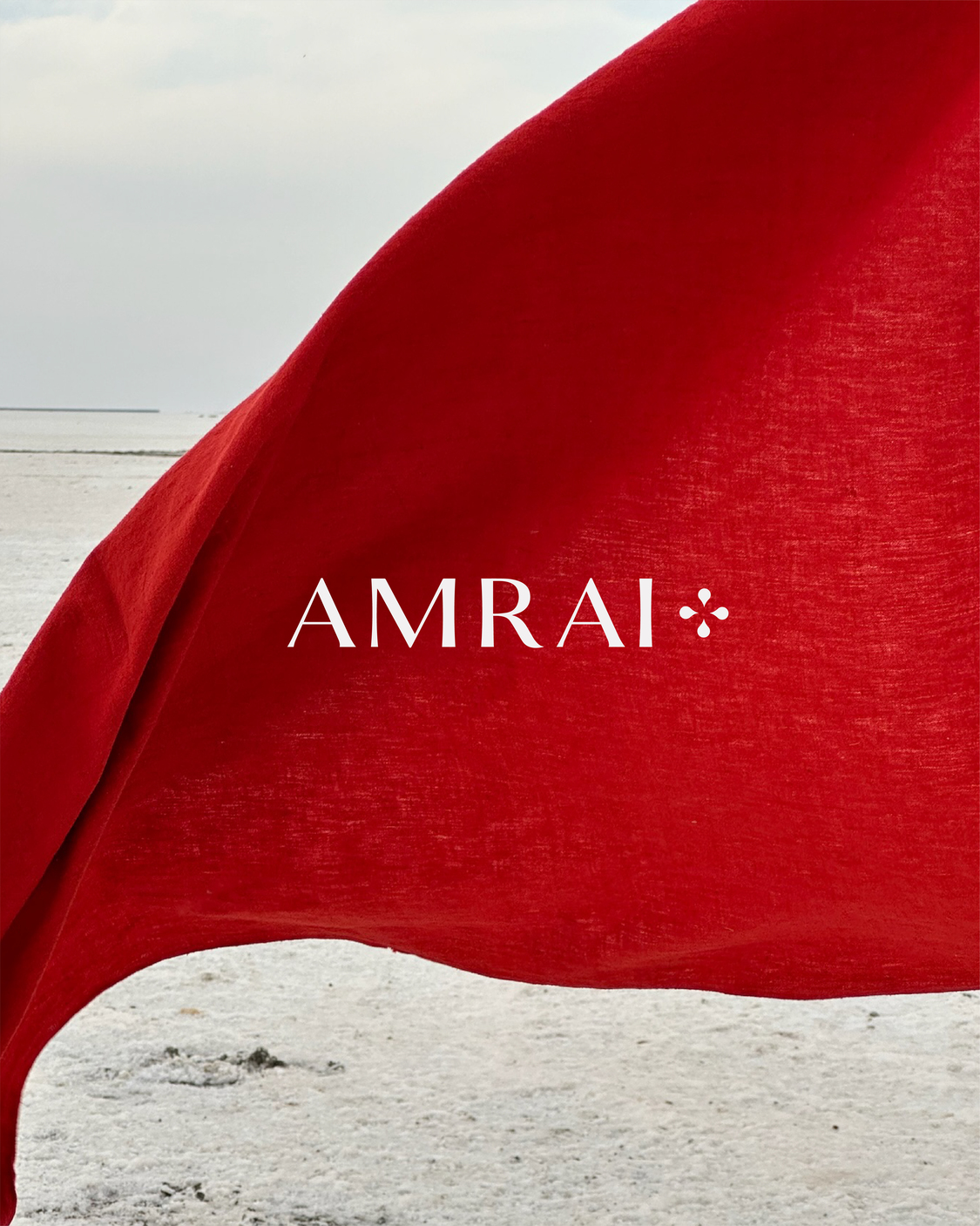
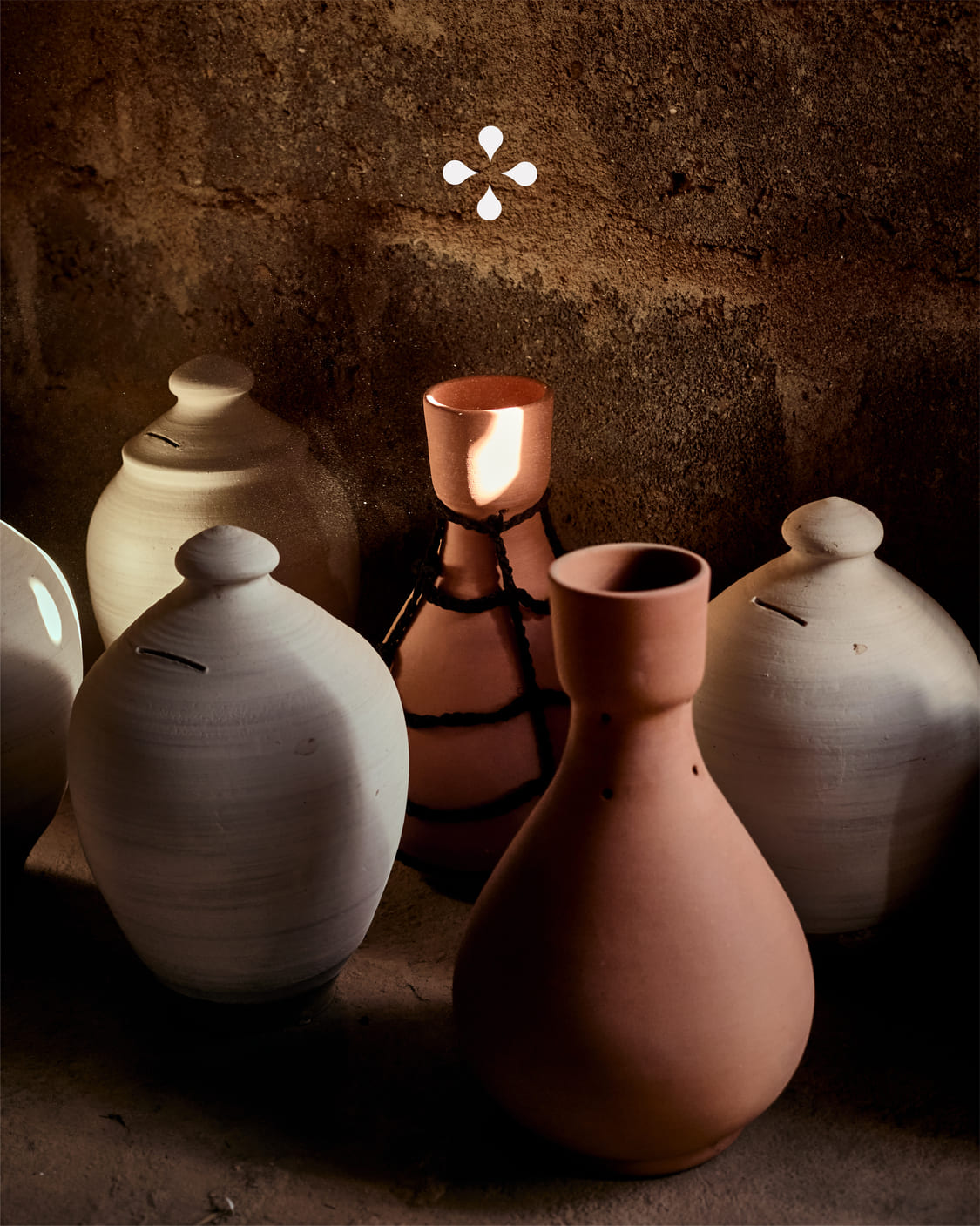
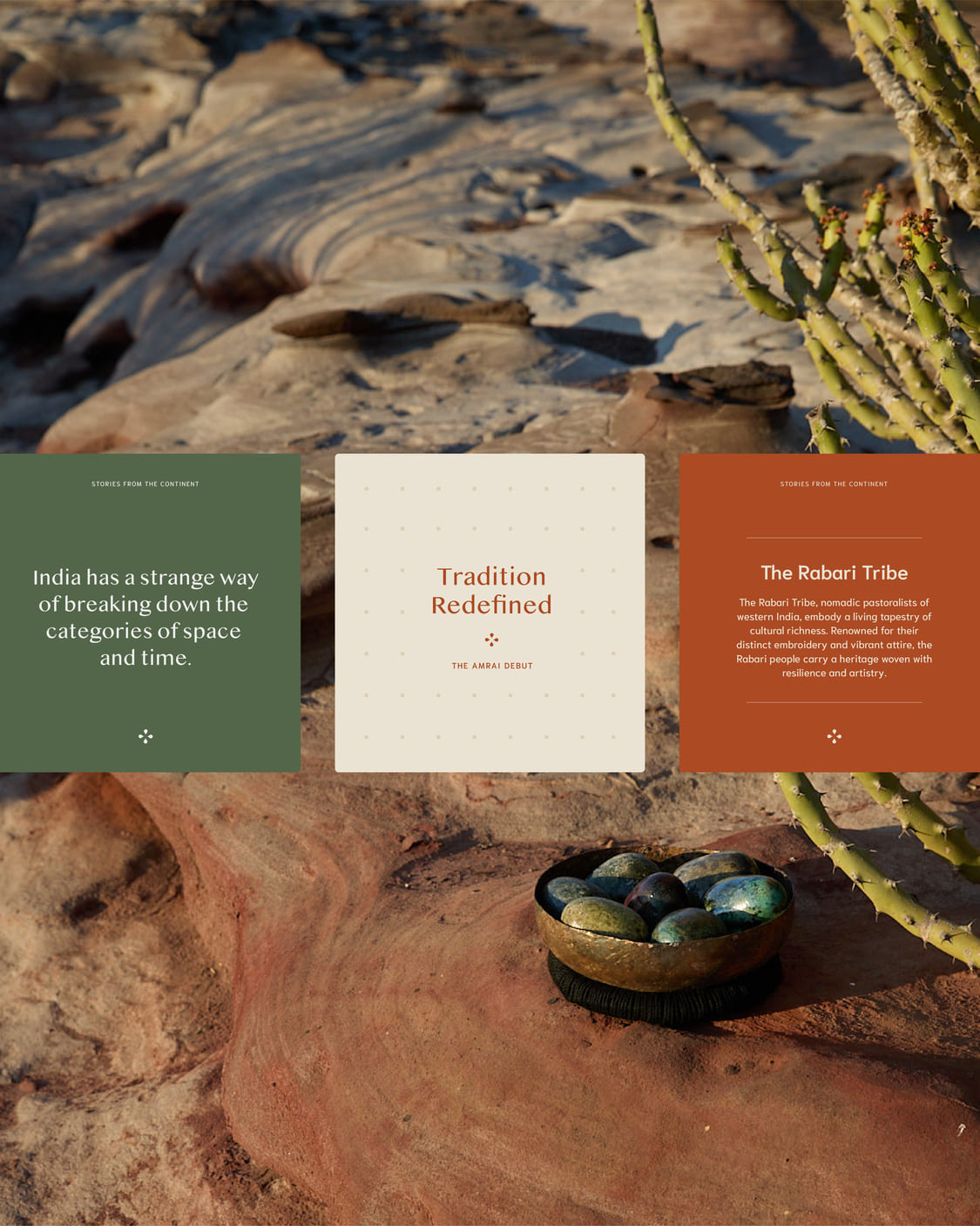
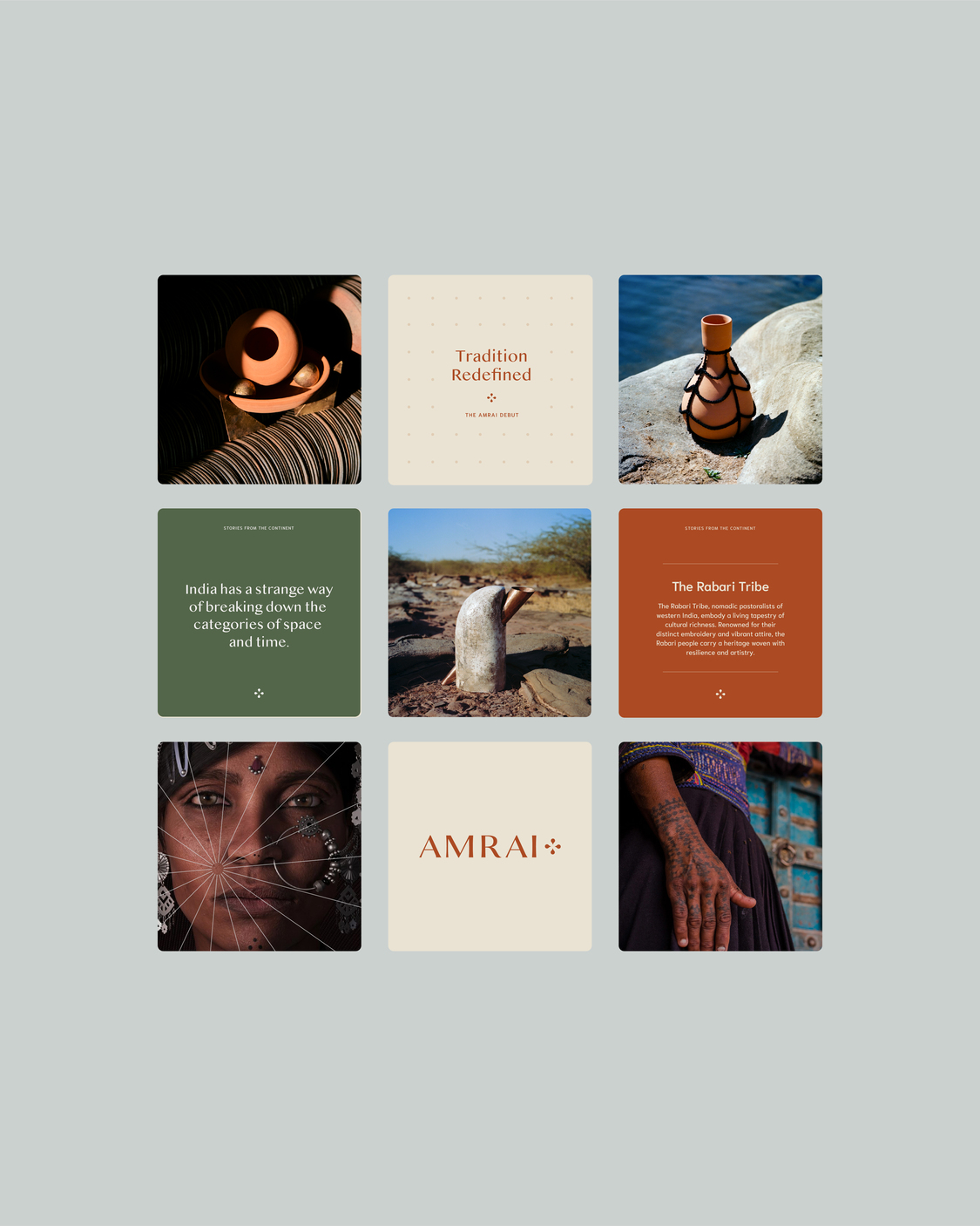
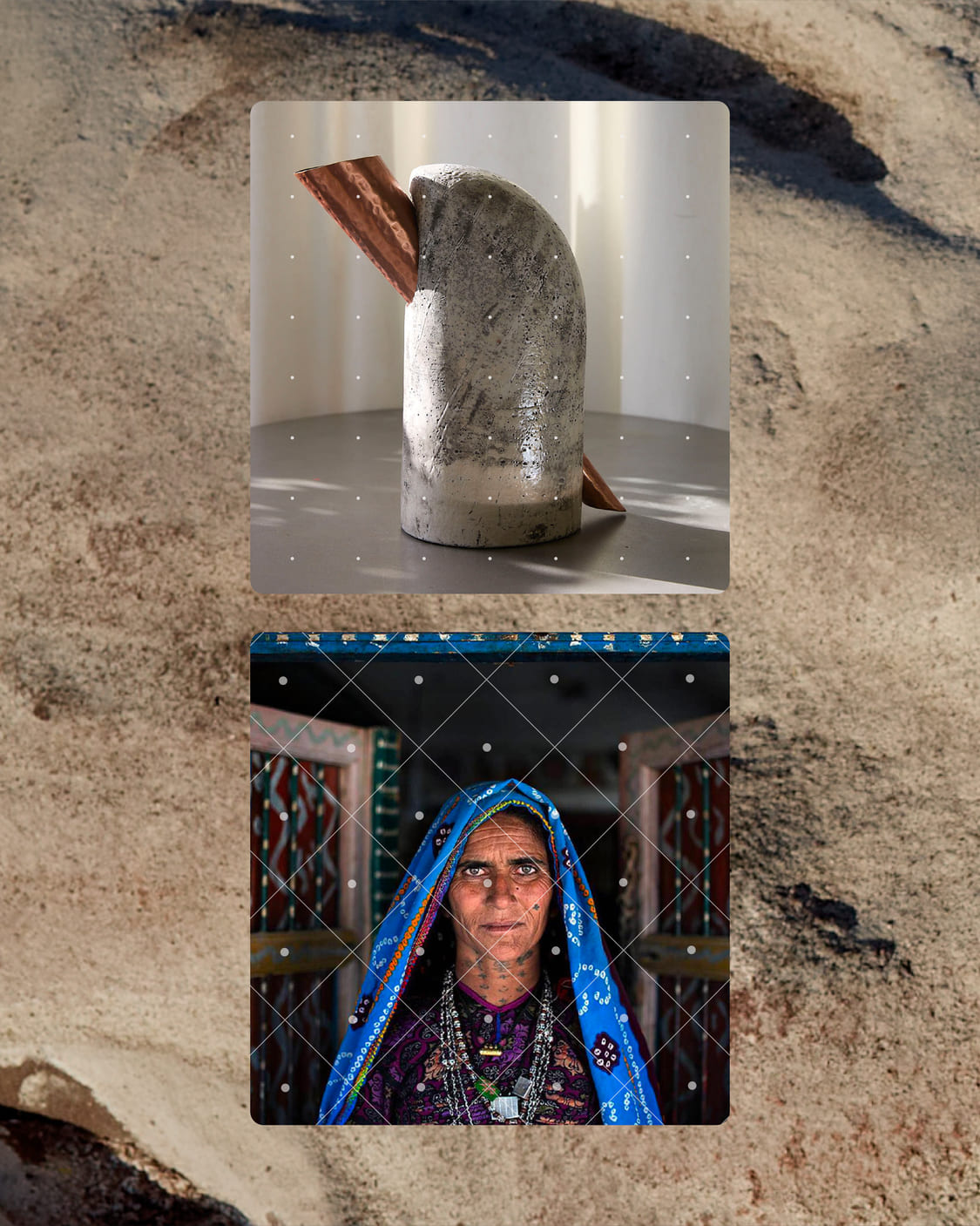
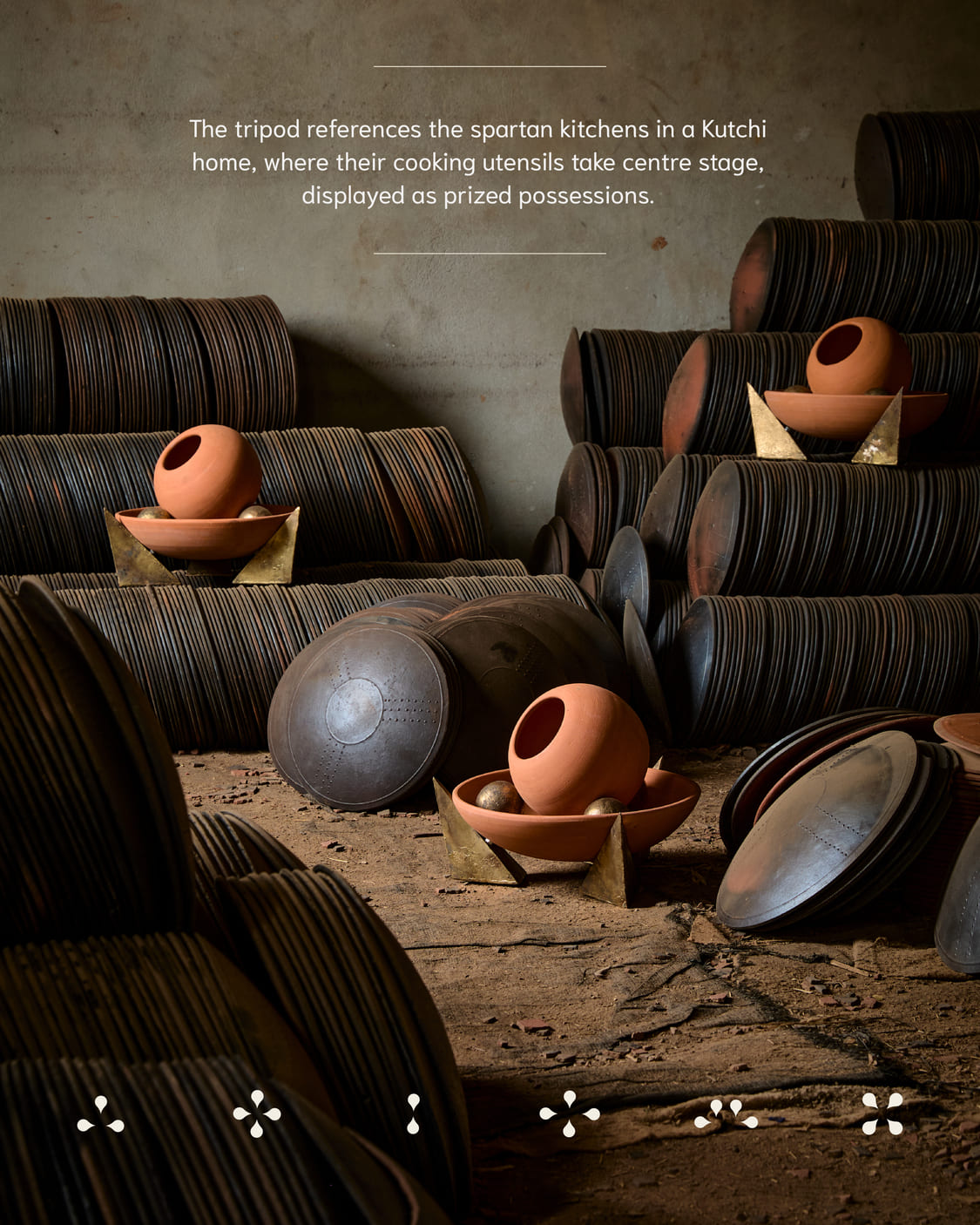
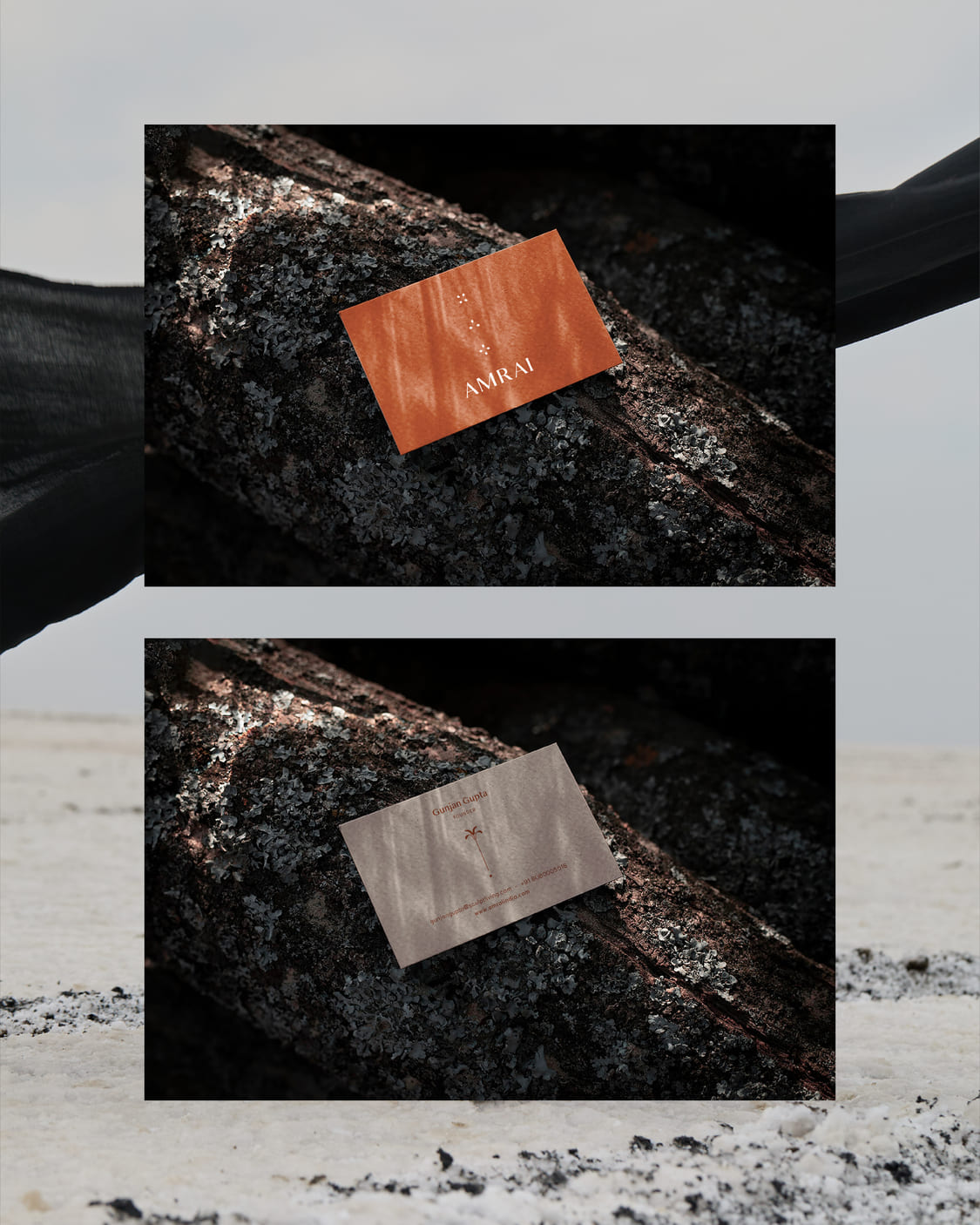
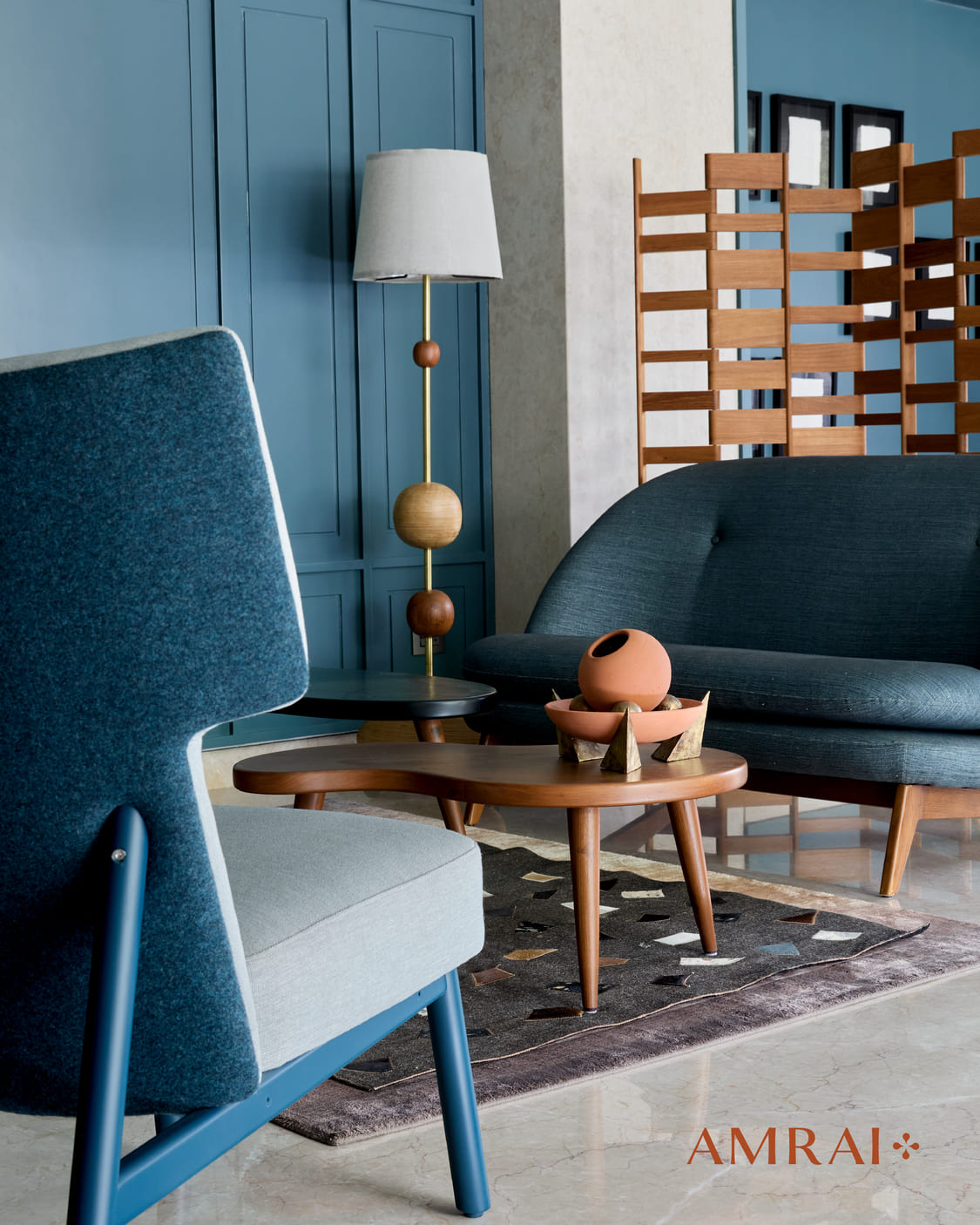
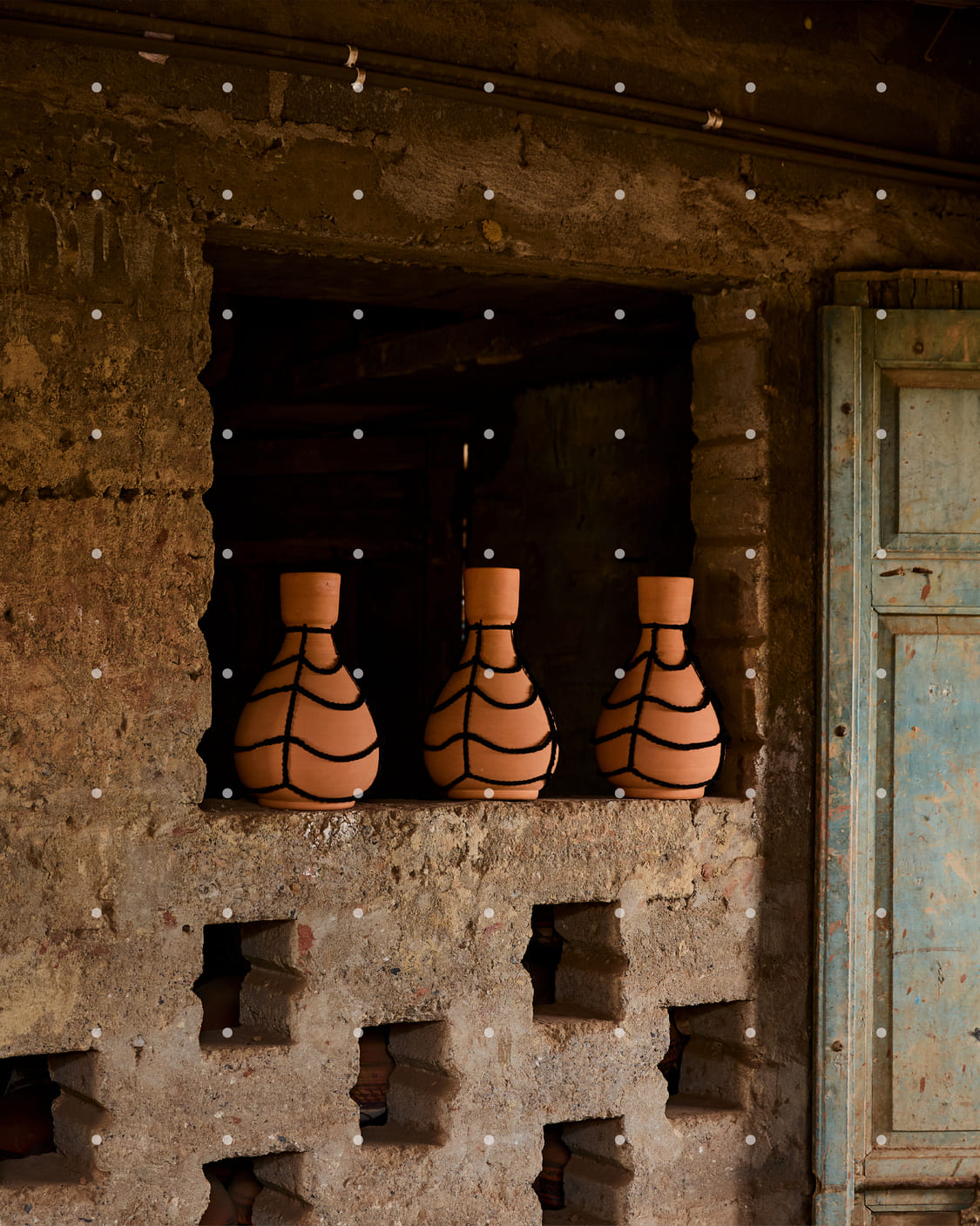
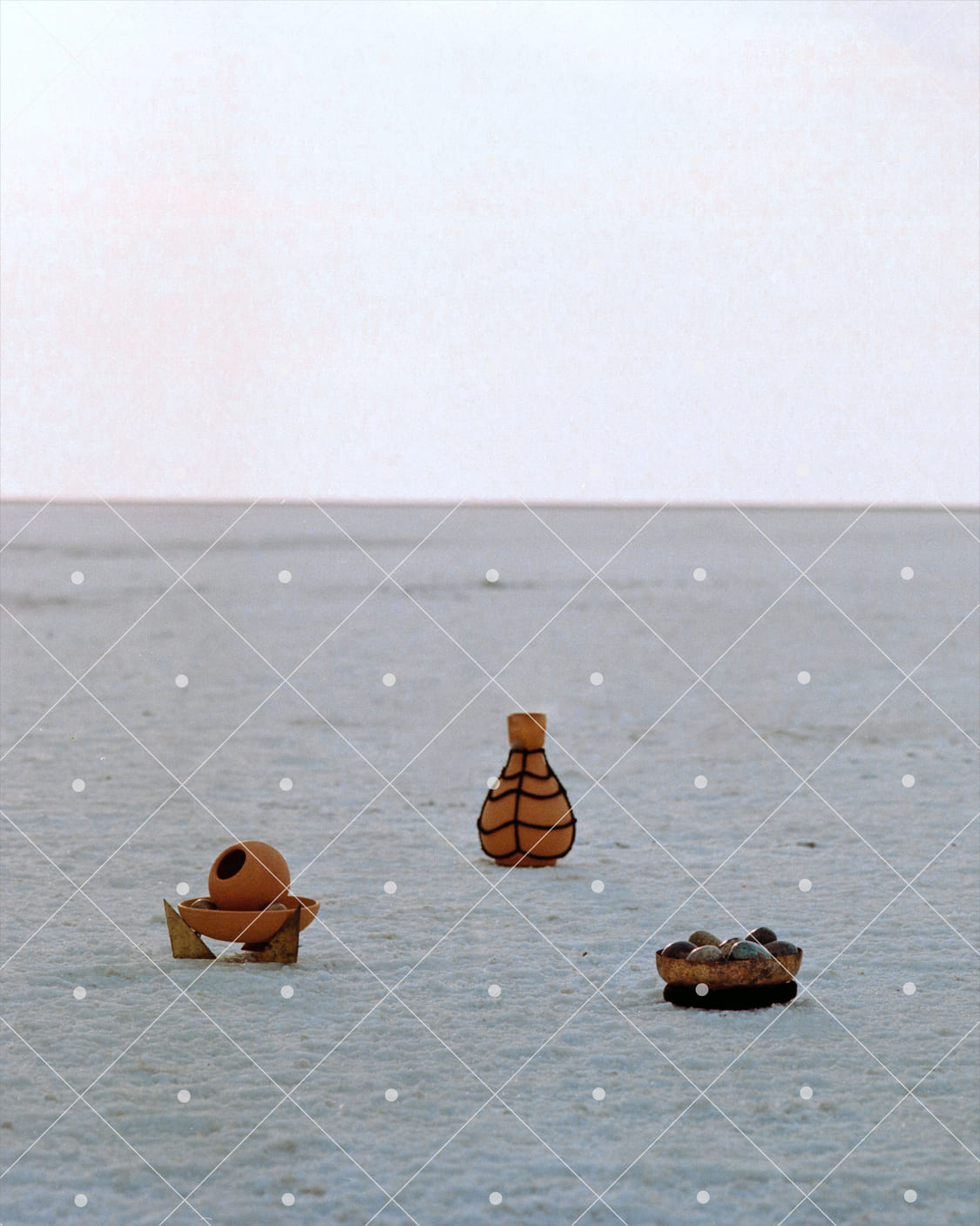
CREDIT
- Agency/Creative: Studio Fable
- Article Title: Amrai’s Identity Design by Studio Fable
- Organisation/Entity: Agency
- Project Type: Graphic
- Project Status: Published
- Agency/Creative Country: India
- Agency/Creative City: Kolkata
- Market Region: Asia
- Project Deliverables: Brand Design, Brand Identity, Identity System, Logo Design
- Industry: Retail
- Keywords: Home Decor, Indian Handicraft, Indian Artisan, Sculptural Objects, Sculptures, Decor, Arhitecture
-
Credits:
Designer: Sakshi Jalan
Designer: Anvita Tekriwal











